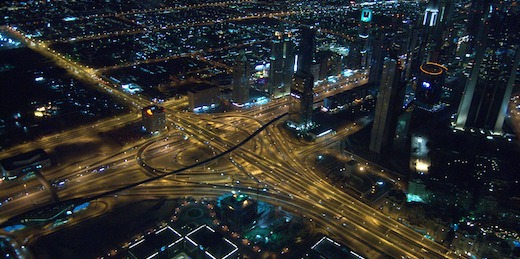The article titled “Reform of UAE’s ownership and residency laws will only improve growth prospects” appeared in The National on 25th May, 2018 and is posted below. Click here to access the original article.
Reform of UAE’s ownership and residency laws will only improve growth prospects
The UAE Cabinet announced two major policy initiatives this past Sunday: a 10-year residency visa for skilled professionals along with a 5-year visa for students and ownership reforms allowing foreigners to own 100 per cent of businesses in most sectors.
These long awaited and welcome reforms are promising policy initiatives that can change medium-term growth prospects for the country. We need to await the new laws and implementation decrees for a full assessment of the economic and wider social and cultural implications.
However, the announcements herald broader and necessary structural reforms: removing barriers and opening the economy to foreign direct investment, liberalizing rights of establishment and ownership, and removing distortions in the labour market and immigration system through retaining and attracting higher skilled human capital.
Sound implementation of the new visa rules would attract middle to higher income professionals and gradually change the mix of skills of the labour force towards more educated, higher skilled workers and professionals. The reform enables the UAE to attract as well as retain qualified human capital which would facilitate the transfer of technology and know-how and diversification of the economy into higher value added, more complex activities. In addition, the policy change would increase domestic investment by current foreign residents. Skilled professionals are mainly middle and high income and would invest more and buy assets in the UAE if they are assured of long term residency.
Uncertainty on residency and visa rules increases risk and discourages investment in real estate and long lived assets. There are good economic and financial reasons to extend even the 10-year residency. Singapore is a good example: permanent residency is granted when one invests at least 2.5 million Singapore dollars in a new business or the same amount in the Global Investor Programme which invests in local companies.
Rescinding the Kafala labour sponsorship system, its distortions and its abuses, increasing labour mobility within and between sectors will also benefit the economy. Binding employees to employers for a fixed period of time restricts labour mobility, reduces economic efficiency and productivity growth and the resilience of the UAE economy to economic shocks as well as its capacity to innovate by shifting labour and capital to new activities.
The move to allow 100 per cent foreign ownership could see an immediate impact across all non-oil sectors – retail, manufacturing, with health and education potentially being the “quick-win” sectors, along with the hospitality and real estate (given that longer-term residency would be an incentive for expats to own homes and businesses).
The long awaited Foreign Investment Law should clarify the conditions and scope of the liberalisation of foreign ownership: would it apply across all sectors with exceptions (“strategic sectors”) and would it ease the limit on foreign ownership of listed companies and securities? Liberalisation and reduction of barriers to foreign investment should also be accompanied by steps to reduce the overall costs of doing business and consolidate fees, that have been rising in the past two years.
Removing barriers, reducing and consolidating the plethora of fees would help the country improve its ranking and move up to within the top-20 nations in the World Bank’s Doing Business report. The UAE ranks the highest in the Arab world and and 21 globally.
The aim of the announced policy reforms is to promote economic diversification by boosting the knowledge-based sector. That includes new technologies such as AI, blockchain technologies, fintech, life sciences, clean energy and technology such as solar and wind, space and aeronautics which would augment and complement the UAE’s advanced infrastructure and logistics, and other technologies underlying the 4th Industrial Revolution.
To develop these complex activities requires human capital with STEM (science, technology, engineering and mathematics) skills and know-how. The new visa and residency rules are important in that they can attract STEM human capital.
New visa and residency rules would also provide incentives to reduce the outflow of remittances and capital: long-term, protected residency and visas, will encourage residents to invest in the UAE instead of sending their savings abroad.
Outbound remittances from the UAE were about AED 164.3 billion ($45bn) last year alone. Reducing capital outflows and remittances would improve the structure of the country’s balance of payments. In this regard, the time is right to accelerate the development of the financial markets – for example by issuing long-term government bonds and encouraging the issue of high grade corporate bonds- facilitate access to finance, develop the mortgage market, develop a pensions system and otherwise increase the availability of medium and long-term financial instruments. Introducing pension plans for expatriates and allowing retirees to settle in the UAE would also provide incentives to expatriates to remain, invest and contribute further to the country’s development.
Details are not yet available as to how and when the reforms will be rolled out and their applicability to existing businesses and visas. The important matter will be clarity of the rules and regulations and the speed of implementation. Will the visa be related to current jobs (as it is now) or would it be on residency and not linked to employment, meaning that employees made redundant are free to stay in the country and search for another job.
It will be important to translate the cabinet decisions into laws that protect investors’ rights whether it is FDI-related or personal human capital in order to obtain the benefits of liberalisation.






